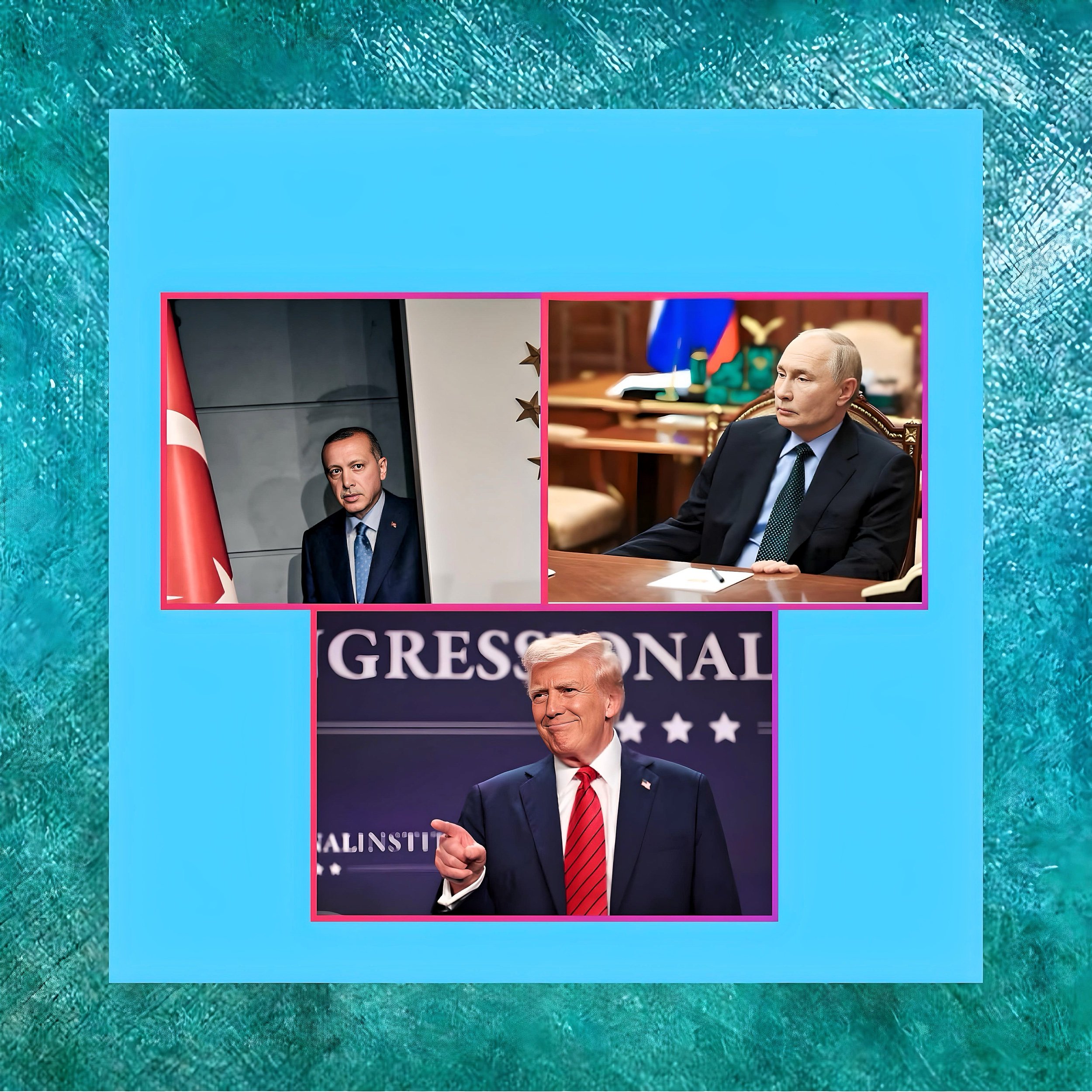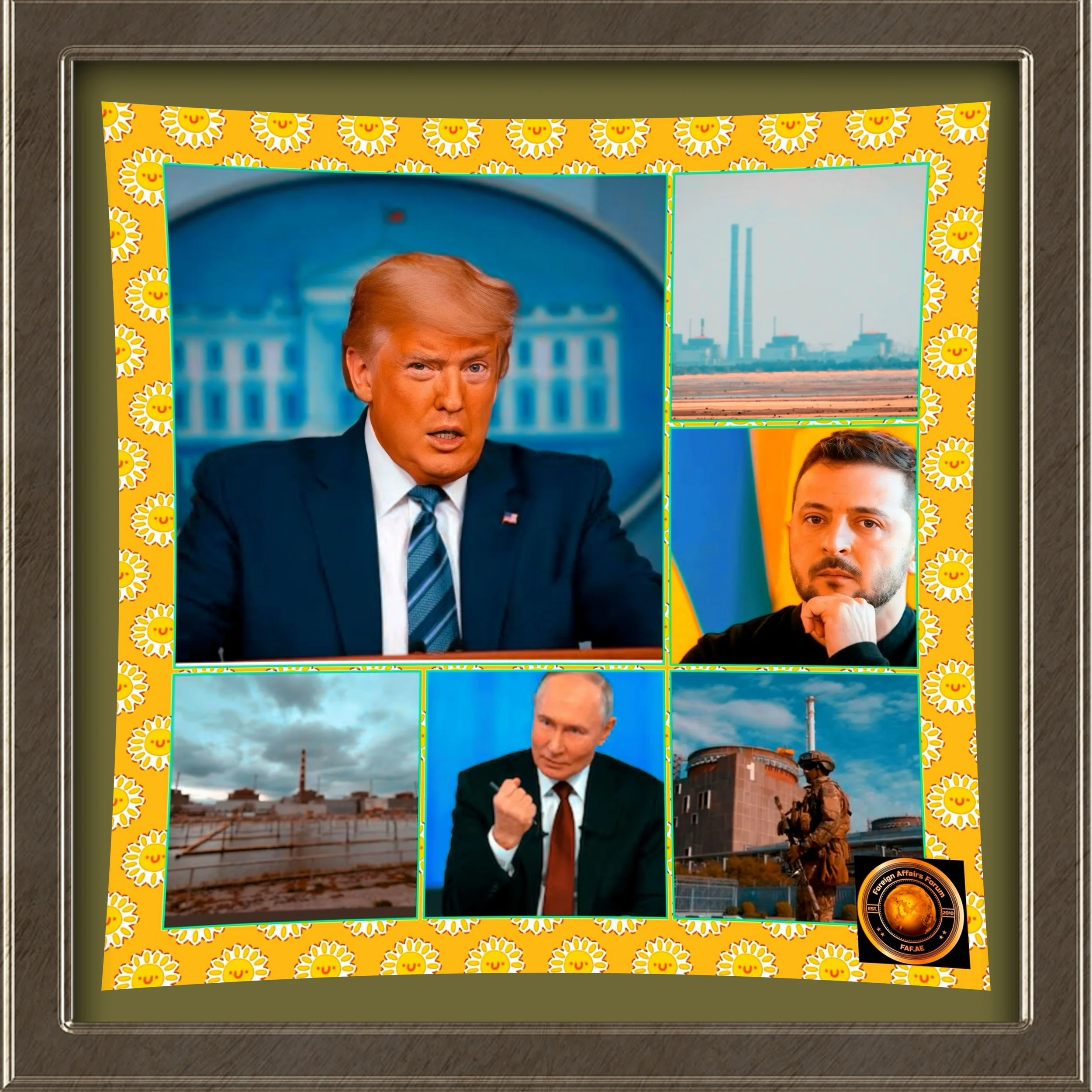The Istanbul Talks and Ukraine Peace Efforts: Strategic Implications of US-Russia Negotiations
Introduction
The impending US-Russia talks in Istanbul on February 27, 2025, mark a pivotal moment in the trajectory of the Ukraine war, raising critical questions about the viability of peace efforts and the risks of sidelining Kyiv in bilateral negotiations.
These discussions follow the Riyadh meeting on February 18, where the two powers laid the groundwork for diplomatic normalization amid unresolved tensions over Ukraine’s sovereignty.
Drawing parallels to the failed 2022 Istanbul Communiqué and contextualizing Turkey’s renewed mediation role, this analysis explores how the current talks could either revive or derail prospects for a durable settlement.
Historical Precedent: The 2022 Istanbul Communiqué and Its Collapse
The Istanbul talks of March 2022 represented the closest Russia and Ukraine came to a ceasefire agreement following the invasion.
The draft communiqué proposed Ukrainian neutrality, security guarantees from third-party states, and deferred negotiations on Crimea’s status over 15 years.
However, Russia’s insertion of a veto clause—requiring unanimous consent from guarantor states (including Russia) to trigger military support for Ukraine—rendered the security guarantees meaningless and led Kyiv to abandon the deal.
Additionally, Moscow demanded Ukraine reduce its military to 85,000 troops and install a pro-Kremlin leader, terms Kyiv deemed tantamount to capitulation.
Lessons From Failed Diplomacy
The collapse of the 2022 talks underscores two enduring challenges:
Asymmetric Concessions: Russia’s demands for Ukrainian disarmament and territorial recognition clashed with Kyiv’s red lines on sovereignty.
External Pressures: Western reluctance to formalize security guarantees without Ukrainian membership in NATO or the EU left Kyiv vulnerable to Moscow’s veto power.
These dynamics persist in 2025, compounded by the Trump administration’s unilateral engagement with Russia and exclusion of Ukrainian representatives—a move critics argue replicates the structural flaws of the 2022 process.
The 2025 Istanbul Agenda: Technical Diplomacy or Strategic Gambit?
The upcoming talks focus on three interlinked objectives: embassy normalization, economic coordination, and preparatory discussions for Ukraine negotiations.
While framed as confidence-building measures, each carries implications for Ukraine’s leverage.
Embassy Normalization: Symbolism vs. Substance
Restoring full diplomatic relations requires resolving reciprocal restrictions imposed since 2022, including staff caps and mobility limits for embassy personnel.
Progress here could signal a broader détente, but Ukrainian officials fear it risks legitimizing Russia’s aggression by treating the invasion as a bilateral US-Russia dispute rather than a violation of international law.
Economic Coordination: Sanctions Relief and Energy Interests
Russian negotiators have emphasized reinstating US energy firms in Arctic and Far East projects, leveraging Trump’s business-friendly approach to sanctions.
While easing restrictions on agricultural or medical exports might build goodwill, broader energy-sector collaboration could undercut EU efforts to isolate Russia economically and embolden Moscow to prolong the war.
The Ukraine Question: Absent Yet Central
Despite US assurances that Istanbul talks are “preparatory,” Kyiv remains excluded—a decision that mirrors the 2022 process and amplifies fears of a Trump-Putin deal trading territorial concessions for ceasefire promises.
Ukrainian President Volodymyr Zelensky has condemned this approach, reiterating that “no peace can last if it is negotiated over our heads”.
Turkey’s Mediation: Balancing Ambition and Neutrality
Turkey’s role as host reflects its continued pursuit of strategic relevance in Black Sea diplomacy.
Having brokered the 2022 grain deal and earlier peace efforts, Ankara positions itself as a neutral arbiter despite its NATO membership and defense ties with Ukraine.
Erdogan’s Dual Agenda
Diplomatic Prestige: Successfully mediating US-Russia talks would bolster Turkey’s bid for global leadership, particularly within the Global South.
Economic and Security Gains: Ankara seeks to revive the Black Sea Grain Initiative to stabilize food prices and negotiate joint drone production deals with Ukraine, balancing its reliance on Russian energy imports.
However, Turkey’s capacity to influence outcomes remains limited.
Its refusal to join Western sanctions on Russia strains relations with NATO allies, while its insistence on Ukrainian inclusion in final talks risks alienating Moscow.
Ukraine’s Precarious Position: Sovereignty vs. Bilateralism
Kyiv’s exclusion from the Istanbul talks exacerbates existential anxieties about great-power bargaining.
The Trump administration’s rhetoric—blaming Ukraine for the war and demanding natural resource concessions—has eroded trust, with Zelensky accusing Washington of “trading principles for expediency”.
Military and Aid Dynamics
The recent $61 billion US aid package sustains Ukraine’s defense but faces uncertainty if Istanbul talks prioritize sanctions relief for Russia. Ukrainian commanders warn that stalled Western support could force territorial retreats by late 2025, increasing pressure to accept unfavorable terms.
Domestic Political Constraints
Zelensky’s government faces mounting scrutiny over wartime governance and corruption scandals.
Accepting a US-Russia deal that codifies territorial losses would likely trigger public backlash and destabilize the government, particularly given Ukraine’s constitutional mandate to reclaim all occupied lands.
Global Repercussions: Alliances Under Strain
The Istanbul negotiations have intensified fissures within the Western alliance, revealing divergent priorities between the US and Europe.
European Union Apprehensions
Germany and France have criticized the unilateral US approach, emphasizing that any peace framework must align with EU sanctions and include European security guarantees.
Concerns persist that US-Russia energy deals could undermine Europe’s shift away from Russian hydrocarbons, leaving it vulnerable to future supply cuts.
NATO’s Credibility Crisis
Trump’s dismissive stance toward Article 5 commitments has fueled doubts about NATO’s reliability. A US-Russia agreement excluding Ukraine could incentivize further Russian aggression in Moldova or the Baltics, testing alliance cohesion.
Potential Outcomes and Strategic Risks
The Istanbul talks may yield incremental progress on technical issues while deferring substantive disagreements. Three scenarios emerge:
Limited Embassy Restoration: A symbolic agreement to reinstate diplomats could precede broader talks but risk normalizing Russia’s war without addressing its causes.
Economic Pilot Programs: Targeted sanctions relief for agriculture or medicine might build trust but could fragment Western unity if Europe opposes concessions.
Framework for Ukraine Talks: Establishing working groups on security guarantees and territorial disputes could formalize Ukraine’s inclusion in future rounds—a critical step for legitimacy.
However, the most perilous outcome remains a US-Russia understanding that pressures Ukraine into neutrality or territorial concessions, replicating the 2022 communiqué’s fatal flaws.
Conclusion
Navigating the Path to Inclusive Peace
The Istanbul talks epitomize the tension between expediency and principle in modern conflict resolution.
While US-Russia dialogue is necessary to halt the war’s escalation, sidelining Ukraine and European stakeholders risks entrenching a coercive peace that rewards aggression.
For Turkey, the talks offer a chance to solidify its mediator role but demand careful navigation of competing loyalties.
Ultimately, sustainable peace requires two conditions absent from the current process:
Ukrainian Agency: No settlement can endure without Kyiv’s direct participation and consent.
Multilateral Guarantees: Security assurances must involve NATO and the EU to counterbalance Russian veto power.
As the conflict enters its fourth year, the Istanbul talks represent either a stepping stone toward inclusive negotiations or a cautionary tale of great-power diplomacy’s limitations.
The path chosen will shape not only Ukraine’s future but the integrity of the international order itself.





